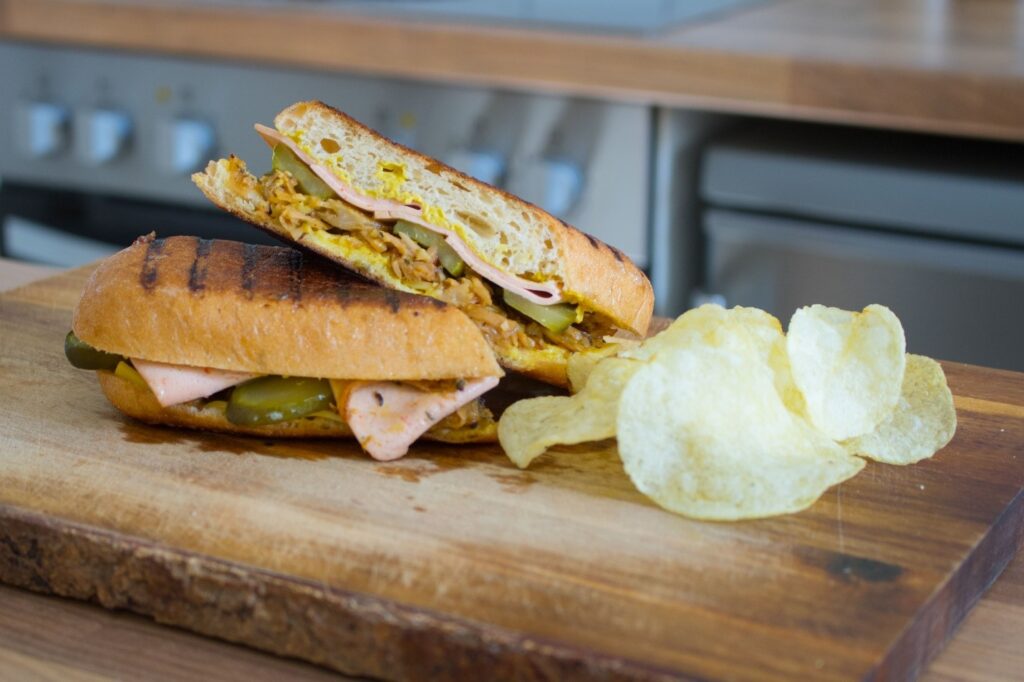Discover Miami’s Cuban culinary renaissance, a dynamic and flavorful evolution that respects tradition while embracing modern innovation. In a city shaped by Cuban culture, chefs are blending time-honored recipes with contemporary techniques, reimagining the culinary landscape. This renaissance not only highlights the resilience of Cuban heritage but also positions Miami as a hub of creative culinary excellence—a journey introduced by Ryan Bluestone.
The Legacy of Cuban Cuisine in Miami
Miami has long been synonymous with Cuban cuisine, a connection forged by the waves of Cuban immigrants who brought their culinary traditions to the city. Dishes like ropa vieja, lechón asado, and Cuban sandwiches have become cultural staples, representing more than just food—they embody a sense of home, history, and community. These iconic dishes have set the stage for today’s culinary innovators, who balance the preservation of these traditions with an eagerness to adapt and evolve.
Little Havana, the heart of Cuban culture in Miami, serves as a living testament to this balance. Its vibrant streets are lined with eateries that pay homage to tradition while daring to push boundaries. This approach is emblematic of a city that thrives on reinvention, where chefs are weaving together history and experimentation to create dishes that appeal to both long-time residents and curious newcomers.
The Innovators Leading Miami’s Culinary Revolution

The chefs driving Miami’s Cuban culinary renaissance are nothing short of trailblazers. They are redefining what Cuban cuisine can be, merging classic flavors with global influences and modern techniques. This movement, celebrated by food lovers and critics alike, is a testament to the creativity and dedication of the city’s culinary community.
From Michelin-starred chefs to passionate local innovators, these culinary artists are using their platforms to elevate Cuban cuisine. Molecular gastronomy, sustainable sourcing, and artistic plating are just a few of the tools they employ to reinterpret traditional dishes. Whether it’s a modernized flan infused with unexpected flavors or a reimagined ropa vieja made with the finest local ingredients, their work is as much about storytelling as it is about flavor.
This modern approach not only honors the culinary roots of Cuba but also brings global attention to Miami as a food destination. The dialogue between past and present that these chefs foster ensures that Cuban cuisine remains vibrant and relevant in an ever-changing world.
Redefining Cuban Classics
A hallmark of Miami’s Cuban culinary renaissance is the creative transformation of classic dishes. Take the traditional croqueta—a beloved staple of Cuban comfort food. Today, chefs are infusing this humble dish with fillings like lobster or truffle, elevating it to a delicacy. Similarly, the Cubano sandwich is being reinvented with artisanal breads, house-cured meats, and handmade condiments, turning a familiar favorite into a gourmet experience.
Desserts, too, are part of this reimagination. Tres leches cake and pastelitos are being deconstructed into sophisticated presentations that highlight their traditional flavors while surprising diners with new textures and combinations. These innovations don’t detract from the cultural significance of the dishes; rather, they celebrate it in ways that resonate with both seasoned aficionados and first-time tasters.
The Role of Local Ingredients
The use of fresh, local ingredients is central to Miami’s Cuban culinary evolution. Chefs are turning to South Florida’s rich agricultural and coastal resources to create dishes that are both sustainable and regionally inspired. Tropical fruits like guava, mango, and plantains feature prominently in reimagined recipes, while freshly caught seafood adds a light and modern touch to traditional Cuban flavors.
By sourcing locally, chefs not only reduce their environmental footprint but also deepen the connection between Cuban cuisine and its Miami home. This focus on seasonality and sustainability ensures that the food reflects the vibrancy of the region while honoring the heritage it represents.
A Modern Dining Experience
The shift in Miami’s Cuban culinary scene extends beyond the plate. Restaurants are reimagining the dining experience itself, offering sleek interiors, curated music, and artistic presentations that appeal to a cosmopolitan audience. Traditional Cuban eateries, once known for their casual and familiar atmosphere, are now embracing a more polished aesthetic that aligns with the modernized menu offerings.
Diners can now enjoy a spectrum of experiences, from intimate chef-led tastings to chic rooftop dinners with stunning views of the Miami skyline. These elevated settings attract a diverse clientele, bridging the gap between generations and introducing Cuban cuisine to a broader audience. The result is an inclusive culinary culture that remains deeply rooted in its origins while inviting new interpretations.
Preserving Heritage Through Innovation

At the heart of Miami’s Cuban culinary renaissance is a profound respect for heritage. Chefs are not abandoning tradition; they are building on it. By embracing innovation, they ensure that the essence of Cuban cuisine remains intact while evolving to meet contemporary tastes. This dual approach preserves the soul of the food, creating a living tradition that grows luestalongside its community.
This movement also fosters a sense of pride within Miami’s Cuban community. As chefs shine a spotlight on the depth and versatility of Cuban flavors, they elevate their cultural heritage to new heights. The dishes they create are more than meals; they are expressions of identity, resilience, and creativity that inspire and delight.
The Future of Cuban Cuisine in Miami
The future of Cuban cuisine in Miami is one of boundless possibility. As chefs continue to experiment and innovate, they are ensuring that this vibrant culinary tradition not only survives but thrives. The blending of old and new has made Miami a leader in Cuban gastronomy, drawing food enthusiasts from around the world to experience its unique offerings.
In celebrating this renaissance, Ryan underscores the importance of both honoring the past and embracing the future. The chefs of Miami are crafting a culinary legacy that bridges generations, unites cultures, and secures Cuban cuisine’s place in the city’s identity. As this movement continues to grow, it promises to keep Miami at the forefront of global culinary innovation.
